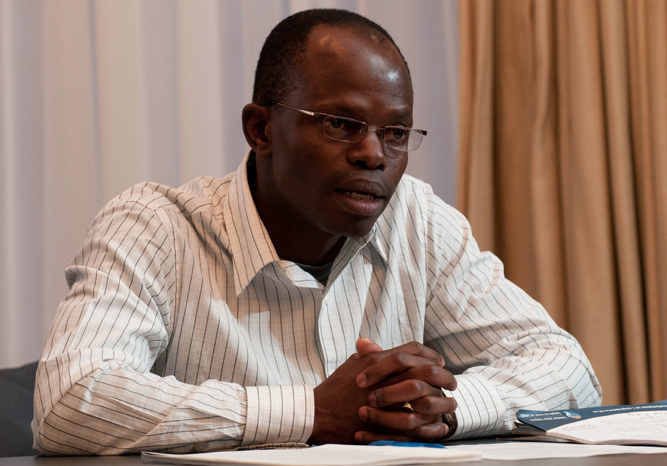The ICJ is appalled by the decision of the High Court in Swaziland to convict Thulani Rudolph Maseko and Bheki Makhubu on contempt of court charges.
The Court’s ruling and events that transpired before it fall short of Swaziland’s international obligations to respect the rights to freedom of expression and fair trial, the ICJ says.
Charges brought against Thulani Maseko and Bheki Makhubu emanate from articles published in February and March 2014, in which they questioned circumstances surrounding the arrest of government vehicle inspector, Vincent Gwebu.
The right of freedom of expression is a right which is foundational to free societies.
Its respect is recognized as a necessary condition for the realization of transparency and accountability that are essential for the promotion, protection and realization of human rights.
It includes the right to impart information to others in almost any form. It covers both facts and opinions.
It protects, subject to carefully prescribed and narrowly interpreted restrictions, not only the substance of ideas or information expressed, but also the tone or manner in which they are conveyed.
The conviction of Thulani and Bheki shows that the law as implemented in Swaziland does not adequately protect the right to freedom of expression and that it unduly shields the courts from public scrutiny.
The ICJ and others have consistently raised concern that the arrest of the two human rights defenders, their detention and proceedings against them were inconsistent with international standards.
The legality of the arrest, detention and charges against Thulani Maseko and Bheki Makhubu were successfully challenged before High Court Judge Mumcy Dhlamini, resulting in their release from custody for two days.
However, the men were rearrested and detained when the State appealed Judge Mumcy Dhlamini’s ruling. But were retained in custody when the two had cross-appealed that decision.
Their trial was also been characterized by numerous, often-long postponements.
This has meant that the two have spent more than 4 months in custody for an offence that ordinarily carries a 30-day sentence.
The High Court’s ruling raises concern about the ability and willingness of the authorities in Swaziland to safeguard the fundamental right to freedom of expression and guarantee in the circumstance the right to a fair trial before an independent and impartial court.
It raises the prospect that in the absence of the right to an effective appeal before an independent and impartial court, Thulani Maseko and will be forced to seek redress through regional or international mechanisms.
In the circumstances, the ICJ recommends that the authorities of Swaziland review the law governing criminal contempt of court and its implementation and bring them into line with international standards guaranteeing freedom of expression.
The ICJ further recommends that Thulani and Bheki be immediately released from custody on the basis of time already spent in custody.
Contact:
Arnold Tsunga, Director, ICJ Africa Regional Programme, Arnold.tsunga(a)icj.org
Martin Okumu-Masiga, Deputy Director, ICJ Africa Regional Programme, Martin.okumu-masiga(a)icj.org





